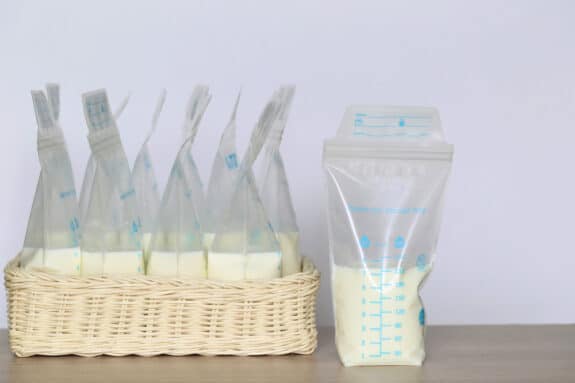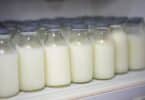Between 5 and 10 percent of women enter prison and jail pregnant, and approximately 2,000 babies are born to incarcerated women annually. When these moms give birth, the baby often goes into foster care or is placed with family. Sadly, the lactating mom is forced to pump and dump her milk if the baby is not able to visit. However, a positive change is happening at Michigan’s Huron Valley Correctional Facility.
Under a new program, inmates at Huron Valley Correctional Facility will be allowed to send their breast milk home for their children. “A baby is an innocent party in all of this. I think we can all agree that a baby has done nothing wrong and deserves the best start in life, and if a parent wants to provide breast milk to their infant, they should be able to,” said Danielle Atkinson, the founder and national executive director of Mothering Justice.
Previously, inmates could breastfeed during family visits and to relieve pressure, but the breast milk pumped couldn’t be saved or transported; it was thrown away. “People who have given birth have been allowed to pump and dump,” said state Sen. Sue Shink. “The breast milk program takes it one step further and actually allows that milk to be delivered to the babies who will then be able to drink that nutritious food.”
The policy change was initiated after Detroit activist Siwatu Salama Ra, who was incarcerated while pregnant, couldn’t provide breast milk outside of visits. “She saw that it was a problem for other people and decided to make a change. We hope that that’s how all legislation is made, right?” said Atkinson.
Women who participate in the program will have their milk picked up from the Huron Valley Correctional Facility by a family member or designated caregiver. “I think the most important parts of the program are that we’re not wasting breast milk,” said Atkinson. “That an individual who’s recently given birth is able to utilize this extremely, extremely rare and important resource and that we have proper storage for it so it doesn’t go bad. That parent is not in pain from being engorged, and that it gets to the family that is taking care of the infant while parent is away.”
More needs to be done for breastfeeding women who are incarcerated. While many studies have been done about nursing policies in the prison system, the ability for breast milk to be sent home is a fundamental piece that should be incorporated into each state’s plan moving forward. The individuals caring for these babies shouldn’t need to buy formula when the mom’s milk is available for free.
Related Articles:







